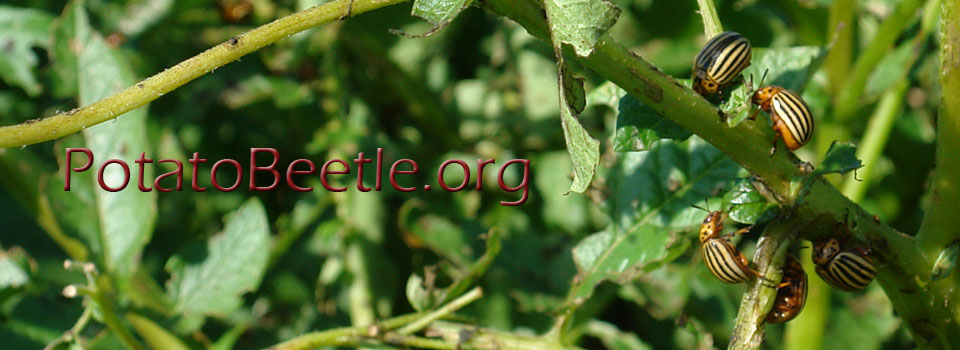Wetzel WC, Thaler JS. Oecologia. 2018;186(2):483-493. doi: 10.1007/s00442-017-4034-x.
A consequence of plant diversity is that it can allow or force herbivores to consume multiple plant species, which studies indicate can have major effects on herbivore fitness. An underappreciated but potentially important factor modulating the consequences of multi-species diets is the extent to which herbivores can choose their diets versus being forced to consume specific host-plant sequences. We examined how host-selection behavior alters the effects of multi-species diets using the Colorado potato beetle (Leptinotarsa decemlineata) and diets of potato plants (Solanum tuberosum), tomato plants (S. lycopersicum), or both. When we gave beetles simultaneous access to both plants, allowing them to choose their diets, their final mass was within 0.1% of the average mass across both monocultures and 43.6% lower than mass on potato, the superior host in monoculture. This result indicates these beetles do not benefit from a mixed diet, and that the presence of tomato, an inferior but suitable host, makes it difficult to use potato. In contrast, when we forced beetles to switch between host species, their final mass was 37.8% less than the average of beetles fed constant diets of either host species and within 3.5% of the mass on tomato even though they also fed on potato. This indicates preventing host-selection behavior magnified the negative effects of this multi-species diet. Our results imply that ecological contexts that constrain host-selection or force host-switches, such as communities with competition or predation, will lead plant species diversity to reduce the performance of insect herbivores.
